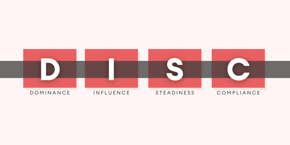The internet is awash with advice for businesses on how to choose software solutions and assemble an effective tech stack – much of it far too detailed to be of practical use for busy manufacturers and distributors.
To help companies get to grips with what can be a complex and confusing issue, here we tackle the bottom-line considerations for businesses engaging with software providers to develop an effective technology provision.
“It’s important to consider how a solution performs in a demonstration vs what it will deliver in reality for your business.”
Q1. Do they understand your industry?
A one size fits all approach to technology will rarely be possible or desirable in any industry, let alone between sectors. As such, the first key measure to gauge with any software provider is how much they understand the unique challenges of your industry and whether they work with any other counterpart customers in the space.
Can their solution work in tandem with other existing solutions present in the business and are they aware of compatibility issues? It should always be a red flag when you’d be the first company in your field to work with a particular supplier – after all, no business wants to be a guinea pig when it comes to trialing a solution that should be all about delivering efficiencies and benefits from day one.
Q2. What do they really mean by integration?
Software providers will typically use the integration buzzword more than any other, yet the reality is that it’s a concept easily said yet far more challenging to deliver. Be sure to scrutinize what any prospective supplier means by the term.
- Will their integration proposition be delivered manually or automatically?
- What will the data look like once it has been integrated?
- Is it a custom solution and who will the onus be on to manage the process and fix any challenges as they occur?
Getting the answers to these questions and more could mean the difference between securing the solution that’s right for you and wasting precious budget on a provision that simply doesn’t deliver.
Q3. Are they offering a platform or a product?
Understanding exactly what you are buying and what it can deliver is crucial in the software specification process.
The first thing to clarify is whether the proposition represents a fully formed solution or a component that will need to be supplemented with wider software down the line? What’s more, it’s important to consider how a solution performs in a demonstration vs what it will deliver in reality for your business.
Typically, product demos are conducted using comprehensive, rich data that you simply may not have access to. Will it be your responsibility to source and input this over time or will the provider do it for you?
A system that requires major time and money investment from the customer on an ongoing basis, for example, is unlikely to be appropriate for a busy SME manufacturer or distributor with limited resources. Sadly, all too often, businesses choose a sales solution without considering the longer-term operational costs required to make it an ongoing success.
Clarify software update requirements in advance to avoid having to learn the hard way.
Q4. Can they evidence success?
Any reputable supplier should be able to comfortably and easily evidence the results their product will deliver. You will want to know:
- the bottom line ROI you can expect.
- key metrics regarding the time and money efficiencies on offer.
- what case studies they can share of businesses already using the solution.
You should also be able to speak to existing product users in your sector who can deliver positive feedback. The devil lies in the detail here. If the provider can’t or won’t deal in specifics, chances are they won’t be the right option for your needs.
Q5. What does their customer service look like?
Having a robust, reliable, and responsive customer service offering marks out the strongest providers from the herd. At the very least, before embarking on any relationship with a solutions provider, you should be comfortable with the level of training, maintenance and problem-solving support that will be available to you in the future.
Technology solutions typically require regular maintenance and updates to perform at their best and the vast majority of specifiers are unlikely to want to assume this responsibility for themselves, particularly when issues inevitably arise.
Clarify these points in advance to avoid having to learn the hard way.
Q6. What’s their Achilles heel?
Software vendors are typically very accomplished at telling you what their solution can do but less forthcoming about the limitations.
Of course, few buyers and sellers favor confrontation, but asking a provider about their weaknesses is entirely reasonable and needn’t be seen as a tough interview question.
Inevitably, their response will be telling as to their overall credibility and trustworthiness and how the relationship is likely to develop over the longer term.
The key here is honest feedback. All product and service providers have their limitations. If yours is professing otherwise, you should consider looking elsewhere.



